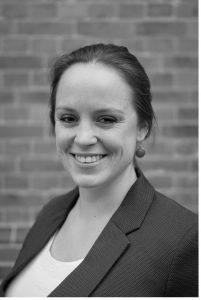2020 Impact Fellows
Abel-Gautier Kouakou

Abel-Gautier Kouakou is an Agricultural and Environmental Economist, using insights from Behavioral and Experimental Economics to help design and evaluate agri-environmental programs. He has knowledge and experience of impact evaluation methods, especially the experimental approach. Countries where he has studied, worked and carried out research include Benin, Cote d’Ivoire, France, Germany, and Senegal. Abel recently completed his PhD and is currently working as a Research Fellow of the Alexander-von-Humboldt Professorship of Environmental Economics, in Osnabrück, Germany.
Martin Paul Jr. Tabe-Ojong

Martin Paul Jr. Tabe-Ojong is an economist specializing in Development and Agricultural Economics. Passionate about international development and poverty reduction, his research interests are focused on household economics using innovative and theory led econometric impact analysis. Specifically, he does empirical research on aspiration and economic mobility, social protection and welfare as well as productivity and efficiency analysis. He is highly skilled at data collection through household surveys, data analysis, and research leading to the implementation of evidence-based policies.
Martin is a holder of an M.Sc. in Agricultural and food economics and is currently undertaking a Ph.D. in Agricultural Economics at the Rheinische Friedrich-Wilhelms-Universität, Bonn. He is a 2019 recipient of the Hans H Ruthenberg Graduate Award from the Foundation Fiat Panis for his excellent MSc thesis on the adoption and commercialization of ICRISAT’s improved chickpea varieties. He was recently a consultant with the World Bank under the prestigious World Bank Group Africa fellowship program where he examined the awareness and participation of smallholder households in inclusive rice value chains in Cote d’Ivoire.
Nicholas Tyack

Nicholas Tyack is a Ph.D. candidate in Development Economics at the Graduate Institute of International and Development Studies in Geneva. He holds a master’s degree in Economics from Charles University in Prague, and a bachelor’s degree in Biology from Pomona College in Claremont, California. His research interests include the economic valuation of crop diversity and biodiversity. He recently started a new position as the Van Vliet Term Assistant Professor of Agricultural Economics at the Department of Agricultural and Resource Economics at the University of Saskatchewan, Saskatoon.
Rachidi Aboudou

Rachidi Aboudou is from Benin. After receiving his Bachelor’s, he earned a master’s degree in Agricultural Economics from the faculty of Agriculture at the University of Parakou in Benin. He also studied for a year at the University of Ilorin in Nigeria. He is currently working at AfricaRice as a research assistant on quantitative impact assessments. He is proficient in statistical software, econometrics analysis techniques, ex-ante and ex-post impact assessment methods, quantitative and qualitative research methodologies, and a wide variety of assessment-related software applications. He is passionate about questions related to impact assessment and plans to continue building his expertise in that area.
Sophia Lüttringhaus

Sophia Lüttringhaus is an agricultural economist focusing on agricultural research for development, climate change adaptation and the economics of (agro-) biodiversity and plant breeding. She works as a research analyst at HFFA Research, a consultancy based in Berlin (Germany). She is also a PhD researcher at the Humboldt University in Berlin and the Potsdam Institute for Climate Impact Research where she investigates the economic impacts and returns of investment to plant breeding and sharing genetic resources in winter wheat and other crops. Prior, Sophia worked at different institutions of agricultural research for development, international cooperation and at universities. She worked for the think tank Climate Analytics supporting low income countries with the scientific climate change knowledge for the COP conferences. At the German Agency for Development Cooperation (GIZ) she monitored biodiversity projects for the International Climate Initiative and at the International Potato Center she investigated potato diversity in the Peruvian Andes.
Yuji Enriquez

Yuji Enriquez is a senior monitoring and evaluation (M&E) specialist at the International Rice Research Institute where he works with the impact evaluation and learning cluster of agri-food policy platform. His work gravitates around the measurement, improvement and scaling of impacts of innovations and practices in agri-food systems. He also supports the design of new programs and develops capacity for results-based management. Previously, Yuji worked with the Gesellschaft für Internationale Zusammenarbeit, Philippine Climate Change Commission and Global Water Partnership in performing M&E of programs mainstreaming and implementing ecosystem-based approaches, climate change adaptation and mitigation and integrated water resources management. He was also part of the young scientific program committee in the 2018 World Water Week. Yuji obtained his MSc in Environmental Management from the National University of Singapore and BA in Consular and Diplomatic Affairs from the De La Salle-College of Saint Benilde. He also holds license for environmental planning.










